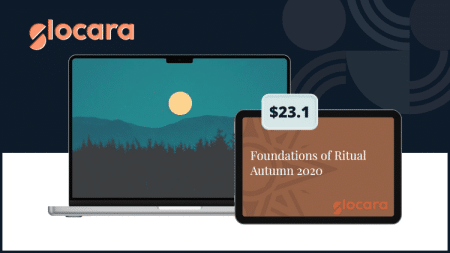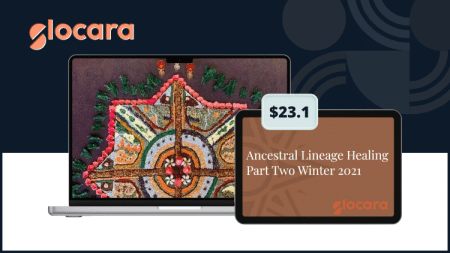Free Download the Practical Animism Part One Winter 2021 by Ancestral Medicine – Includes Verified Content:
Practical Animism Part One Winter 2021
Understanding Animism
Animism is a way of life that emphasizes relationships. Animists see the world as full of persons—both human and other-than-human—and prioritize living ethically and respectfully with all beings. At its core, animism focuses on values and ethics, expressed through rituals, traditions, and practices that cultivate awareness and connection with the living world.
This course invites participants to explore the psychology, ethics, and practices of animism, helping them integrate spiritual awareness into everyday life.
Lesson 1: Kinship, Intimacy, and Animist Psychology
The first lesson explores the deep relational structures in animism, focusing on kinship and intimacy. Students learn how animist psychology perceives relationships, fostering empathy, connection, and ethical interaction with both humans and non-human beings.
By understanding kinship beyond family, participants cultivate a relational worldview that emphasizes care, reciprocity, and emotional awareness.
Lesson 2: Eating, Killing, and Giving Thanks
This lesson examines the ethical dimensions of consuming life. Animists see eating and killing as acts that require awareness, gratitude, and respect. Participants learn practices for giving thanks to the beings who sustain life, cultivating mindful consumption and ethical responsibility.
The module highlights rituals of gratitude, connecting human nourishment to ecological and spiritual awareness.
Lesson 3: Respecting the Ancestors and Tradition
Students explore honoring ancestors and cultural traditions. This lesson emphasizes continuity and respect for wisdom passed down through generations, teaching how to integrate ancestral guidance into modern animist practice.
Recognizing the influence of ancestors fosters humility, ethical grounding, and connection to history, culture, and place.
Lesson 4: Boundaries, Consent, and Sacred Space
Lesson four focuses on setting boundaries and cultivating consent within sacred spaces. Participants learn how to create respectful interactions with humans, animals, plants, and spirits, emphasizing mutual respect and ethical responsibility.
Sacred space, whether physical or energetic, is central to animist practice. This lesson teaches how to protect and honor these spaces while engaging with them authentically.
Lesson 5: Celebrating Diverse Bodies and Wisdoms
Animism recognizes the diversity of life forms and the wisdom they carry. Students explore celebrating diverse human and non-human bodies, learning to honor unique strengths, vulnerabilities, and insights.
This lesson encourages inclusion, empathy, and a broadened understanding of intelligence and vitality across species and forms.
Lesson 6: Extinction, Grieving, and Opening the Heart
The sixth lesson addresses the realities of loss, extinction, and grief. Students learn how to process sorrow for beings, ecosystems, and cultural knowledge, opening the heart to compassion and care.
Grieving is presented as a spiritual practice that deepens relational awareness and fosters ethical responsibility to living beings.
Lesson 7: Finding Your Place in the Natural Disorder
Finally, participants explore how to situate themselves within the complexity of the natural world. Animism recognizes that disorder, chaos, and unpredictability are part of life. This lesson teaches students how to navigate these dynamics with awareness, adaptability, and ethical engagement.
By finding one’s place, participants develop resilience, humility, and a grounded sense of purpose within relational life.
Why Take Practical Animism Part One Winter 2021?
-
Understand animist psychology, kinship, and relational ethics.
-
Learn rituals for gratitude, ancestral respect, and mindful consumption.
-
Explore boundaries, consent, and sacred space practices.
-
Celebrate diverse forms of life and wisdom.
-
Develop emotional awareness through grieving and ecological responsibility.
This course provides foundational knowledge and practical skills for living in harmony with all beings, serving as a starting point for deeper exploration into animist practices.










Reviews
There are no reviews yet.